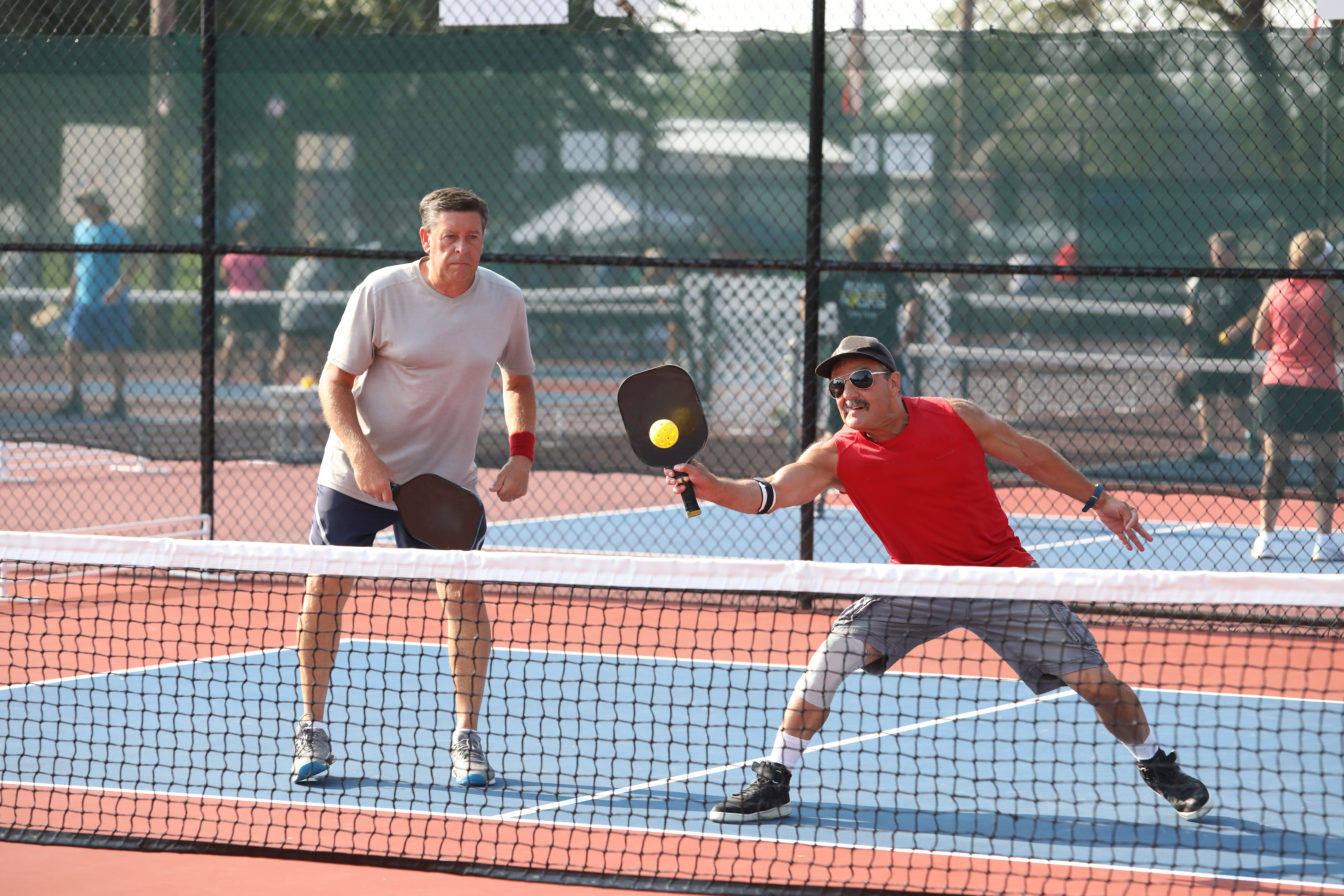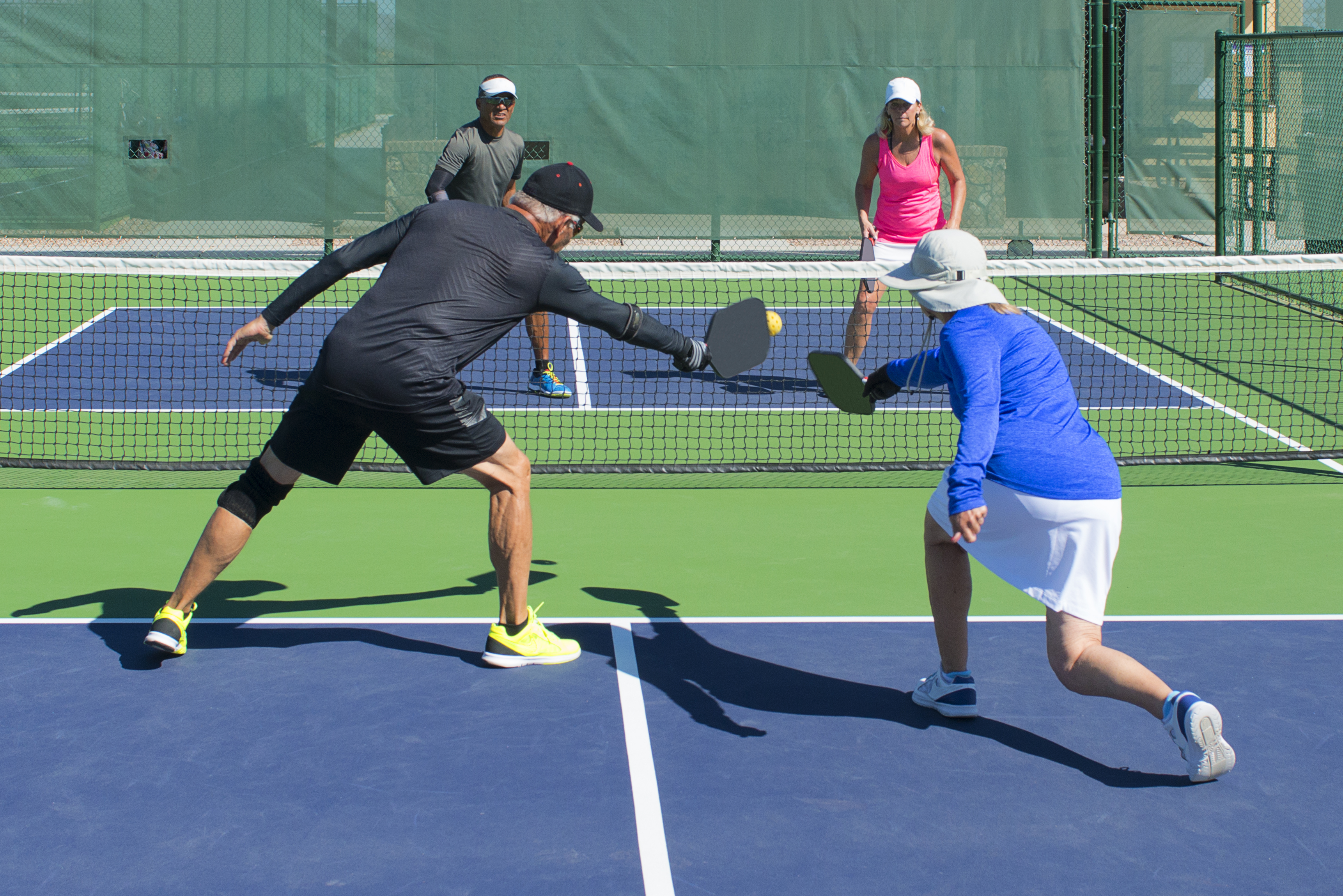During competitive play or even in the most casual of pickleball games, teams will apply pressure on one opponent over the other.
This happens quite frequently and intentionally and although some people thrive under pressure, most will struggle when they’re being intentionally isolated. Back in my soccer days I remember always wanting the ball.
As a self-taught pickleball player, that mentality actually didn’t carry over right away but as I became more educated in the game and with a bit of focus and hard work, that mindset shifted.
This blog post will focus on what to do when a team decides to target a specific player...
First, let’s break down why this happens. In tournaments, the strategy will be to play the opponent’s weakness(es) or to the “weaker” player. It is, after all, competition. However, this also happens a lot during casual games and it really shows that people are likely focused on the wrong thing.
They’re focused on winning rather than taking the opportunity to play and learn from the stronger player.
 If you haven’t heard this common phrase in pickleball: “in rec play, hit to the stronger player but play the weaker person during a tournament”, you will at some point, either from a coach or a seasoned player.
If you haven’t heard this common phrase in pickleball: “in rec play, hit to the stronger player but play the weaker person during a tournament”, you will at some point, either from a coach or a seasoned player.
This way of thinking is something I learned late in my second year of playing pickleball. When I first entered the sport, I played to win; rec play was my only form of pickleball for the first year and a half.
It was only after my first tournament that I gained a different perspective: rec pickleball would be my practice and competition is where I would perform.
Again, these days my mindset for rec games is that they are either going to be fun for everyone and/or will be treated as a time to practice. I also really like introducing this way of thinking to the people who I instruct.
When a “weaker” player is targeted during rec play I often wonder how that person feels coming off the court. As an ambassador, I find it really disappointing when beginner players share with me that they’re uncomfortable returning to the court (especially if they’re playing the same people).
I also wonder if teams actually feel good about winning when they’re actively choosing to not engage both opponents all for the sake of winning?
At a certain point, whether it’s more experience, moving to a higher skill level - or both - I really believe a player’s perspective will broaden and they start to see and understand the court differently.
That said, at the end of the day, it’s your choice to win the easy game or play the harder game and challenge yourselves to the stronger player.
When Your Partner Is The Target
Have you ever been the player watching the ball go back and forth past you to your teammate over and over again? Not fun, right? The best thing to do is try and insert yourself into the game rather than being the bystander. Here are a few suggestions
You can start pinching the centreline and reducing the amount of surface area for the opponents. By doing so, you’re either going to minimize their target and force them to become more precise or to broaden their target and hit the ball to your side of the court.
Stay focused and engaged regardless. Keep the weight of your body on the balls of the feet and reset the feet as the ball leaves the opponent's paddle. This will help you stay mentally in the point and will keep you alert and ready in case the other team decides to speed up the pace at you.
 If your paddle is down, besides your leg and you’re showing signs of disengagement the other team will pick up on this and you’ll likely get burned.
If your paddle is down, besides your leg and you’re showing signs of disengagement the other team will pick up on this and you’ll likely get burned.
Make yourself big. What I mean by this, is move around, and make your presence known. Move with your partner - side to side, move with the ball and start to watch your opponent’s body language. By anticipating the play, the opportunity to insert yourself into the play or maybe to poach the ball will present itself over time.
When You’re The Target
Meet the pressure head on.
Easier said than done, of course, but rising up in a time of pressure comes from first identifying the reasons why you’re being singled out. Every player - every team - will bring their strengths and weaknesses to the table.
By identifying and understanding what you need to work on you will help you take the next steps and that could be acquiring skills and knowledge through a coach and lessons or doing your own research and taking the time to practice. Don’t be afraid to put the work in to overcome your own obstacles.
The score will get the better of you if you let it. As the score climbs and a team gets closer to the win they will often tense up and when the body gets tense you start missing your shots and the more you miss your shots the more you can get inside your head.
It can be a slippery slope and a hard one to get away from. Work on finding a way to reset your mind and body, use this “way” before each rally. Check-in with yourself, by doing so, it will be easier to maintain focus and self-control.
Another case when pressure is applied to an individual is when someone starts to show signs of wavering confidence. Confidence tends to slip when one creates multiple unforced errors in a row; starts to show signs of fatigue or is struggling physically.
There are also external factors that can apply pressure to a team. A common example would be heavy winds - when you are forced to hit more carefully due to the weather conditions you might feel restricted playing your game.
I’ve seen this wear down a team, they will start to swing out of frustration and start to tighten up as they feel the pressure of hitting a precise shot.
Something we see in other sports which I believe also impacts pickleball players is a crowd cheering for the other team. When I say impact, I do feel that players are affected one way or another.
Some will naturally thrive when the crowd is cheering against them; however, most players allow pressure to build from it. I’ve yet to find a player who does not feel affected by a crowd cheering against them and who doesn’t like a crowd cheering for them?
A lot of this pressure requires a player to work through the mental aspect of their game. Players will find various ways to reset their focus back to their strategy during a time out or between rallies. For those of you watching pro pickleball, Lea Jansen is an obvious example; she goes through a consistent routine before each and every point to prepare herself mentally.
This article was taken from our 'Control the Kitchen' Newsletter, if you're interested in receiving more content like this, please feel free to sign up using the subscribe section located at the bottom left of this page (or underneath the article if you're on mobile), thanks!